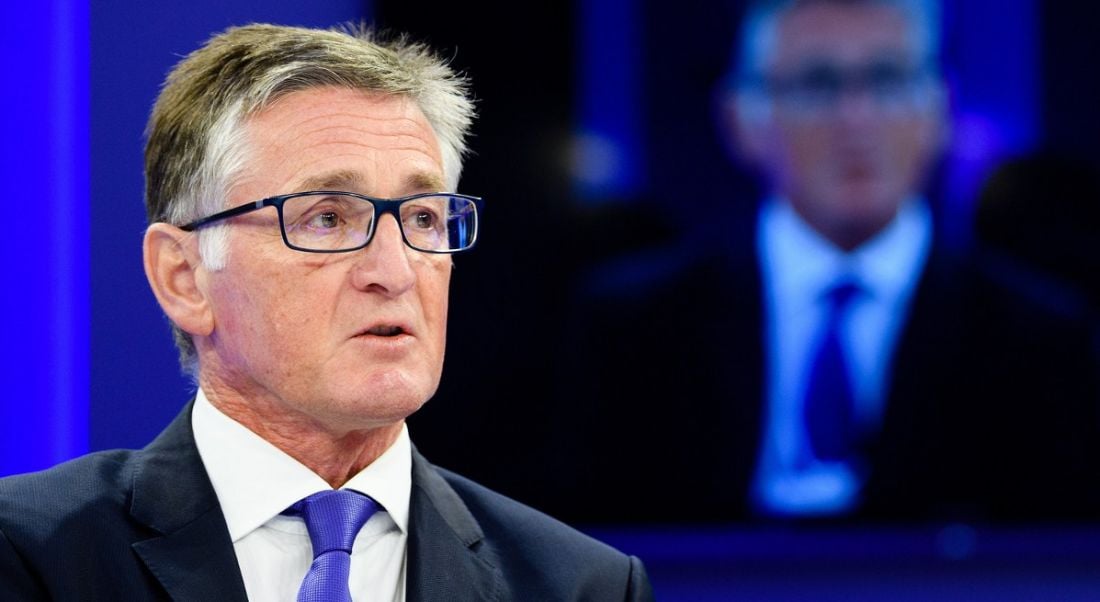The future of work is a hot topic at the moment, and the main question on everyone’s minds is: will my job be taken over by robots?
There is no doubt that the future of work is uncertain. It was a major topic of discussion at the World Economic Forum in Davos this year, with many conversations coming down to whether the future of work looks healthy or toxic.
The future of work affects us all and people are beginning to ask questions: will my job still exist in ten years’ time? Will I be out-skilled by the younger generations coming after me? Will I have to relocate to make ends meet?
While all of these issues affect employees at different levels, the main topic of discussion around what the future of work will look like is: will robots and artificial intelligence (AI) take over the workforce?
AI will be part of the future of work
“The augmented workforce has truly arrived,” said Brett Walsh, global human capital leader at Deloitte. Walsh was in conversation with Matthew Bishop, senior editor at The Economist, discussing what the working world is set to look like.
Walsh talked about Deloitte’s latest report on global human capital trends. “41pc of organisations have completed, or are in the process of completing, experiments with artificial intelligence, computer technologies and robotics,” he said. “Another 35pc are currently in pilots of this.”
So the robots aren’t coming, rather, they’re already here. However, while no one in Davos doubted robots would take over certain jobs, several thought leaders were confident that AI wouldn’t put the job market in jeopardy.
“As an economist, I’m generally quite suspicious about arguments that say technology is going to wipe out all the jobs,” said Bishop. “Throughout history, we’ve been through technological disruptions and what happens is, most of the jobs that get destroyed are the jobs that no one really wants to do and actually, we create new jobs.”
‘It’s easier to see the jobs that get destroyed than it is to imagine the jobs that are going to be created’
– MATTHEW BISHOP
But the worries are real. Employees see robots coming over the hill that are able to do jobs currently done by humans, which might cause the workforce to suffer. According to Bishop: “It’s easier to see the jobs that get destroyed than it is to imagine the jobs that are going to be created.”
These worries affect the workforce as a whole. “It is a theme throughout history that having a job is a key component of human dignity and fulfilment and if you don’t have that, you really are struggling,” said Bishop.
But will the jobs that give us fulfilment really disappear? Bishop said it’s the creative and lateral thinking of human brains that won’t be replaced by AI, which is what keeps us safe and what will help create new jobs.
“AI is going to have a really big impact on jobs that are essentially about pattern recognition, looking at data and seeing trends and predicting the future. They’re not in jobs that involve elements of judgement and creativity,” he said.
This means, while learning technical skills such as coding or DevOps will be valuable over the next five or 10 years, softer skills that revolve around lateral thinking and creativity are going to be just as important, if not more so, in the decades that follow.
A race to the bottom?
According to Accenture’s strategy on creating the future workforce, 87pc of workers expect parts of their job to be automated in the next five years.
However, while digitalisation in the workforce seems inevitable, it doesn’t automatically mean it will replace the workers themselves.
In Accenture’s report, Michael Lefenfeld, president and CEO of SiGNa Chemistry, said: “Digitalisation is not about removing people, but about making operations safer and efficient. It will create new jobs but will change the type of jobs.”
“We shouldn’t oppose technology with work and the future of work,” said Alain Dehaze, CEO of recruitment agency, Adecco.
Dehaze was speaking as part of a panel discussion in Davos regarding the future of work and whether or not it looked promising or perilous. “The world is permanently changing and for sure, technology is making inroads, but new jobs will be created.”
Planting his flag on the positive side of the discussion, Dehaze discussed the farming industry in the US. He said 40pc of the population were active in agriculture, and 100 years later, this dropped to approximately 2pc. “At the same time, we have one of the lowest ever unemployment figures in the US.”
However, Philip Jennings, general secretary of UNI Global Union, was not so positive at the discussion.
‘The state of the world’s labour market is already in crisis’
– PHILIP JENNINGS
Jennings previously said: “The digital revolution is in the hands of a small number of tech companies that are driving down to a low wage world.” When asked about this during the ‘Promise or Peril’ panel discussion, he added that “the state of the world’s labour market is already in crisis”.
He also talked about freelancing and the ‘gig economy’, which is growing rapidly and will become a major part of the future workforce.
“There needs to be an understanding that in the gig economy, people still have to make a life.”
And while Bishop and Walsh both felt optimistic about the impact of technology at Deloitte’s future of work conversation, they did share their concerns about the contingent workforce.
“The US currently has 30pc contingent workforce. This is expected to rise to 40pc by 2020. In five years’ time, the UK workforce is expected to be at least 50pc contingent,” said Walsh.
The freelance or gigging workforce is definitely increasing, but there are genuine worries about racing to the bottom when it comes to wages. Bishop cited Uber as an example of drivers being paid less than the traditional taxi driver.
Jennings echoed this sentiment: “Uber will tell you that their drivers cannot really make it, but that 400 bucks a month is the difference between being able to pay a healthcare bill or not. But it’s not a permanent place of income and if we don’t get this right, the political consequences will be severe.”
There is no doubt that AI will be a definitive part of the future or work, but there is still a lot of questions over how disruptive it will be.
Looking for jobs in tech or science? Check out our Employer Profiles for information on companies hiring right now and sign up for our Career Republic e-zine for a weekly digest of sci-tech careers news and advice.
Philip Jennings. Image: World Economic Forum/Flickr (CC BY-NC-SA 2.0)




